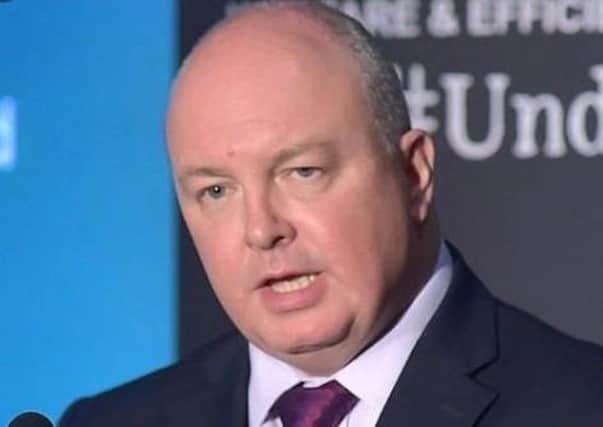Audit Office PSNI report: ‘Something had to give’ says federation chairman


Responding to a critical NI Audit Office report, in which the watchdog reveals concerns over budget management and spiralling sickness levels, PFNI chairman Mark Lindsay said “doing more with less” comes at a heavy price.
The NIAO report – Reducing Costs in the PSNI – said the PSNI long-term financial management strategy “turned very quickly to reducing headcount”.
Advertisement
Hide AdAdvertisement
Hide AdAs the PSNI implemented a methodology known as Priority Based Resourcing (PBR) in an effort to reduce financial pressures, the number of police officers fell by 7% and civilian staff by 5%.
During the same period, overall staff absence increased from an average of eight days in 2010-2011 to 14 days in 2018-2019. At the same time, the number of PSNI officers on restricted duties has doubled, the ‘Reducing Costs in the PSNI’ report also reveals.
Mr Lindsay said: “Where there are fewer officers and hundreds of millions of pounds less to maintain the service, something had to give.
“That is why absences rose from eight to 14 days over a nine-year period. Doing more with less comes at a heavy price. For many officers, excessive work patterns and long shifts with poorly structured leave and rest days played havoc with their lives and the lives of their families.”
Advertisement
Hide AdAdvertisement
Hide AdMr Lindsay said the damage will take time to fix, and added: “Slavishly following Priority Based Resourcing left serious gaps and caused enormous damage. Against that fact, it is all the more remarkable that officer morale didn’t go into meltdown.
“Mistakes were made, and they have been acknowledged by the PSNI, and now we have to develop new ways of doing things which place officer wellbeing and resilience at the heart of the strategy.
“We’re beginning to see a turnaround with a long-overdue increase in officer numbers. Hundreds more are required to get us to the 7,500 which was a peacetime minimum, which was a commitment in ‘New Decade, New Approach’. The PSNI desperately needs investment in estate and equipment to begin to deliver on longer-term savings.
“The Audit Office charts a course for the organisation and it is heartening that some of the recommendations are already being implemented. That said, the budget cannot stand still when demand for services is on the increase. It will be up to the Department of Justice, and the Executive, to properly resource the PSNI to deliver for officers and the general public they serve.”
Advertisement
Hide AdAdvertisement
Hide AdThe Ulster Unionist Party’s NI Policing Board representative, Alan Chambers, said the report’s recommendations provide a “common sense approach as to the way forward” for the PSNI.
“It is clear that the PSNI has been hollowed out, and the result is incredible pressure put on officers to maintain service delivery, given that over this same period, the demands for policing grew in a number of different ways and the number of incidents reported by the public increased markedly,” he said.
Mr Chambers added: “Other political parties need to realise that it is completely unfair to criticise the PSNI’s performance, if they are not prepared to provide the police with the resources – not least in terms of personnel – they need to do the job.
“Lessons must be learned from the NIAO report so that before any future schemes are adopted, the PSNI is very clear as to what the aims are, now they are to be achieved and how they are to be measured, so that success or failure can be accurately assessed, whilst not compromising service delivery.”